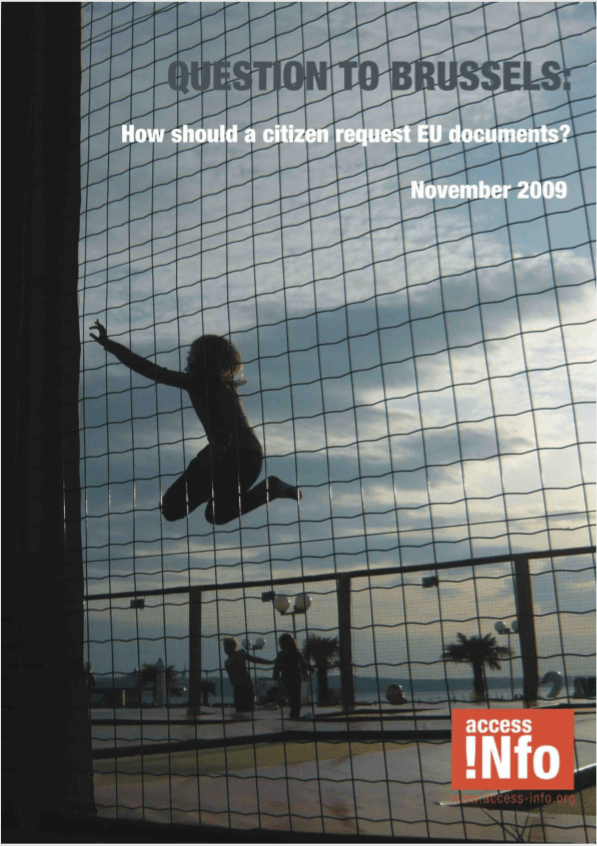Question for Brussels: How should a citizen request EU documents?
At the end of 2009, Access Info filed access to information requests with the 16 Directorate Generals of the European Union. The aim was to monitor whether or not their internal guidelines on answering information requests were of a good enough standard.
The findings of Access Info’s research, published in the report «Question for Brussels: How should a citizen request EU documents?» include a serious barrier to access posed by languages: only two of the 16 DGs had an internet page about access to documents in all the official languages of the EU. “If you don’t speak English, you will fall at the first hurdle when trying to access EU information,” said Helen Darbishire of Access Info.
“For members of the public, it’s hard to know where to start if you have a question for Brussels,” she added. “For those concerned about reducing the public perception of the European Union as distant and impenetrable, making it easier to ask a question would be a very good place to start”.
Poor document management was another issue: DG Employment responded saying they had no internal guidelines on how to answer access to information requests; a couple of weeks later an e-mail was received with the guidelines (in French) attached.
In total, only half of the 16 DGs had and provided internal guidelines; DG Competition refused to disclose its internal guidelines on the grounds that they would “harm the decision-making process” and “had not been validated by the Commission”.
The research found lack of clarity about the rules for access to documents is leading to problems in the treatment of requests for information. One serious failing is that most of the guides, including that of the Secretariat General are out of date and do not give guidance on how to interpret the rules in line with recent European Court of Justice jurisprudence.
The recommendations in the report include:
- ♦ The Secretariat General should make public and review all internal guidelines on access to documents and should ensure that they conform to the rules and relevant court jurisprudence and Ombudsman decisions
- ♦ Serious attention should be paid to the DG Trade internal guidelines which are a great variance from the norm (and possibly the DG Competition)
- ♦ The EU as a whole should make the process of requesting information more transparent to the public, for example with an “access to information” button on the front page of the website of each EU body;
- ♦ Ensure that all DGs receive, acknowledge, and process requests for documents;
- ♦ Address the language issue and ensure that information about the access to documents rules and the request forms are in all EU languages;
- ♦ Make sure that the public is not obliged to provide information about themselves more than the basic name, e-mail or address, and description of the information requested.

